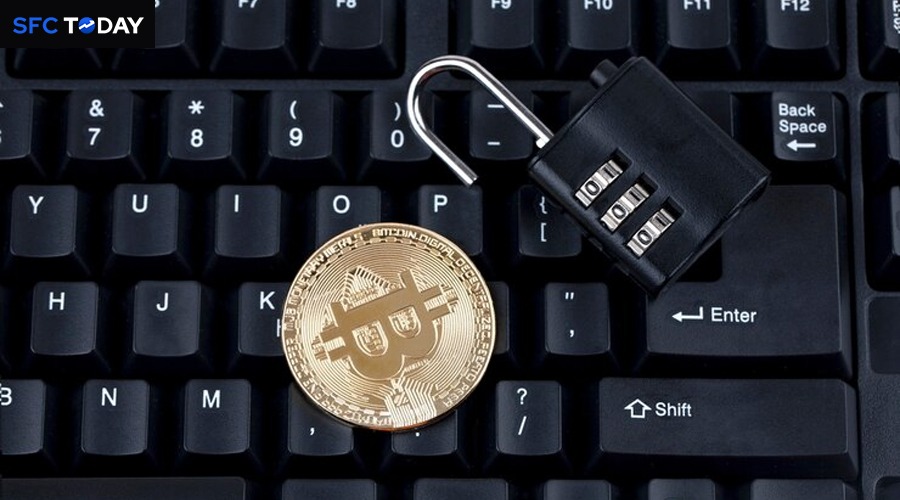Safeguarding your crypto: essential best practices to prevent hacks and protect your digital assets
Cryptocurrency investments and transactions have surged in popularity, but with this rise comes an increased risk of cyber-attacks and hacks. Ensuring the security of your digital assets is paramount. This article outlines best practices to prevent crypto hacks.
1. Use Strong, Unique Passwords
Creating Strong Passwords: Use a combination of uppercase and lowercase letters, numbers, and special characters. Avoid using easily guessable information such as birthdays or common words.
Unique Passwords for Each Account: Ensure that each of your accounts, including exchanges and wallets, has a unique password. This limits the damage in case one of your accounts is compromised.
Password Management Tools: Utilize password managers to securely store and manage your passwords, ensuring they are both strong and unique without the need to remember each one.
This is one of the best practices to prevent crypto hacks.
2. Enable TwoFactor Authentication (2FA)
Enable TwoFactor Authentication is one of the best practices to prevent crypto hacks.
What is 2FA?: Two-factor authentication adds a layer of security by requiring not only a password and username but also something that only the user has on them, i.e., a piece of information only they should know or have immediately to hand.
Types of 2FA: Use 2FA methods such as authenticator apps (e.g., Google Authenticator, Authy) rather than SMS-based 2FA, which can be vulnerable to SIM swapping attacks.
Implementation: Enable 2FA on all your cryptocurrency exchange accounts, wallets, and any other platforms where you store or trade digital assets.
3. Use Hardware Wallets
What are Hardware Wallets?: Hardware wallets are physical devices that store your private keys offline, making them immune to online attacks.
Popular Hardware Wallets: Devices such as Ledger Nano S, Ledger Nano X, and Trezor provide robust security features and are widely recommended for storing significant amounts of cryptocurrency.
Using Hardware Wallets: Always ensure that your hardware wallet is purchased directly from the manufacturer to avoid tampered devices. Follow the setup instructions carefully and keep your recovery seed phrase secure.
4. Regularly Update Software
Regularly update software is one of the best practices to prevent crypto hacks.
Importance of Updates: Software updates often include security patches that protect against known vulnerabilities. Keeping your wallet, exchange apps, and devices up to date is crucial for security.
Automatic Updates: Enable automatic updates where possible to ensure you receive the latest security patches without delay.
Check for Authenticity: Only download wallet software and updates from official sources to avoid malicious software disguised as legitimate updates.
5. Secure Your Private Keys
What are Private Keys?: Private keys are the cryptographic keys that allow you to access and control your cryptocurrency holdings. They should be kept private and secure at all times.
Best Practices for Private Keys:
Never share your private keys with anyone.
Store private keys in secure, offline locations, such as hardware wallets or paper wallets.
Use multi-sig (multi-signature) wallets where possible, which require multiple keys to authorize a transaction, adding an extra layer of security.
6. Be Cautious with Public WiFi
Being cautious with public WiFi is one of the best practices to prevent crypto hacks.
Risks of Public WiFi: Public WiFi networks can be insecure and prone to man-in-the-middle attacks, where hackers intercept the communication between your device and the internet.
Using VPNs: If you must use public WiFi, always use a reputable Virtual Private Network (VPN) to encrypt your internet connection and protect your data from potential eavesdroppers.
Avoid Sensitive Transactions: Refrain from conducting any sensitive cryptocurrency transactions or accessing your wallets while on public WiFi networks.
7. Beware of Phishing Attacks
Recognizing Phishing: Phishing attacks often come in the form of fake emails, messages, or websites that look legitimate but are designed to steal your credentials or private information.
Verifying Links: Always verify the authenticity of links before clicking. Hover over links to check the URL, and ensure it matches the official website.
Using Bookmarks: Bookmark your frequently used cryptocurrency exchange and wallet websites to avoid falling victim to typosquatting or phishing websites.
8. Backup Your Wallets
Why Backups are Important: Wallet backups are essential in situations where you need to restore your cryptocurrencies due to hardware breakdown, theft, or loss of credentials.
Secure Storage: The next step is to secure the wallet’s backup in other areas, preferably encrypted USB drives, and to ensure the unknown persons cannot access them.
Recovery Phrases: For the wallets some users use the recovery phrases, then ensure to keep these phrases safe and in an offline form. Also, never part with them or store them in easily retrievable electronic media.
9. Stay Informed
Keeping Up with Trends: Cryptocurrency security is an area that is even dynamic in the present day. Read news about the existing security threats, new tendencies and developments in the sphere of information security.
Education: Take cybersecurity courses or seminars that are oriented towards cryptocurrencies to expand your knowledge and the ways to protect against them.
Conclusion
Protection of your cryptocurrencies is a continuous process and must be regarded as such. Thus, by using strong passwords and enabling 2FA, using a hardware wallet, keeping the software up to date, securing private keys, avoiding the usage of public Wi-Fi networks, not to fall for a phishing attack, always backs up a wallet, and staying informed, you can minimize the possibility of becoming a victim of a crypto hack and safeguard your money.







